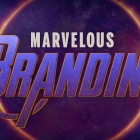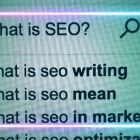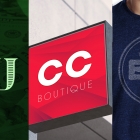The Stop Online Piracy Act: Explained Simply and Without a Single “Arrrgghh!”
SOPA, or the Stop Online Piracy Act, is the topic of much conversation around the Interwebz lately. And rightfully so: it’s a very complex and controversial political issue and it can potentially have a big impact on the Internet AND your business.
Legislators in both the House and Senate are attempting to pass their own versions of anti-piracy legislation by the end of this calendar year. Both bills propose granting new permission to law enforcement agencies in order to crack down on illegal pirating of movies, music and other copyrighted material.
The anti-piracy legislation, known as SOPA or H.R.3261 in the House, and its companion legislation known as “Protect IP” or S.968 in the Senate, has the support of such entities as the Motion Picture Association of America, the Screen Actor’s Guild, Viacom, and other cable, movie, and music industry companies and unions who point to billions of dollars in lost revenue due to piracy. Nike, L’Oreal, Revlon, the NBA, Ford Motor Company, as well as the AFL-CIO and the US Chamber of Commerce also support H.R.3261. (Protect-IP has a similar list of supporters.)
While everyone agrees that Internet piracy is an important issue that must be addressed, some say that the legislation confuses “piracy protection” and “censorship.” Web heavyweights like Google, Yahoo, eBay, LinkedIn, Tumblr and Facebook have joined the battle to stop SOPA, arguing that the legislation—at least the way it is currently written and proposed—is overreaching and could potentially have a devastating impact on free speech and innovation, and that it benefits media companies at the expense of social/tech companies.
So, why do you care?
Well, part of the intent of SOPA is to help put a stop to foreign websites that illegally post and occasionally sell intellectual property coming from the United States. SOPA seeks to empower federal law-enforcement agencies to shut down those sites, cutting off ad revenue and online payments and keeping profits from American innovation in the pockets of Americans.
However, some argue that the way the legislation currently reads, it is possible that sites that contain user generated content like Flickr, Etsy, or Tumblr could be found liable for copyright infringement and be shut down until the content in question is removed.
Your website is not immune to this. For example, if you post a video on your website that contains material protected by copyright, whether you realize it or not, your site can be shut down. You could face blocked ad revenue, blocked search engine traffic, and blocked direct referral traffic from the United States.
Sites that you use every day to help you conduct business could be blocked and email providers might be required to censor links that you send or receive. The links and the content you share on your social media sites can potentially be monitored and censored as well.
Additionally, concerns have been raised about the technical methods used to “shut down” sites. The methods focus primarily on exerting control over DNS, the “telephone book” of the Internet. However, the DNS is carefully designed to be replicated, and if that replication is upset (by injecting blocks on certain domain names, etc) then the stability of the internet itself is affected.
Finally, one of the major issues cited by opponents is that portions of both H.R.3261 and S.968 directly contradict existing law in the form of DMCA (Digital Millennium Copyright Act), notably its established “notice-and-takedown” provision that allows sites such as YouTube and Vimeo to operate today.
No matter what side of the debate you fall on, it’s a very complex issue and it will be interesting to see how it plays out in the coming weeks. Backers of this legislation hope for it to be ready for vote by the end of this year.

 An agency-eye view of Marketing, Advertising, Branding, Design & Media.
An agency-eye view of Marketing, Advertising, Branding, Design & Media.




